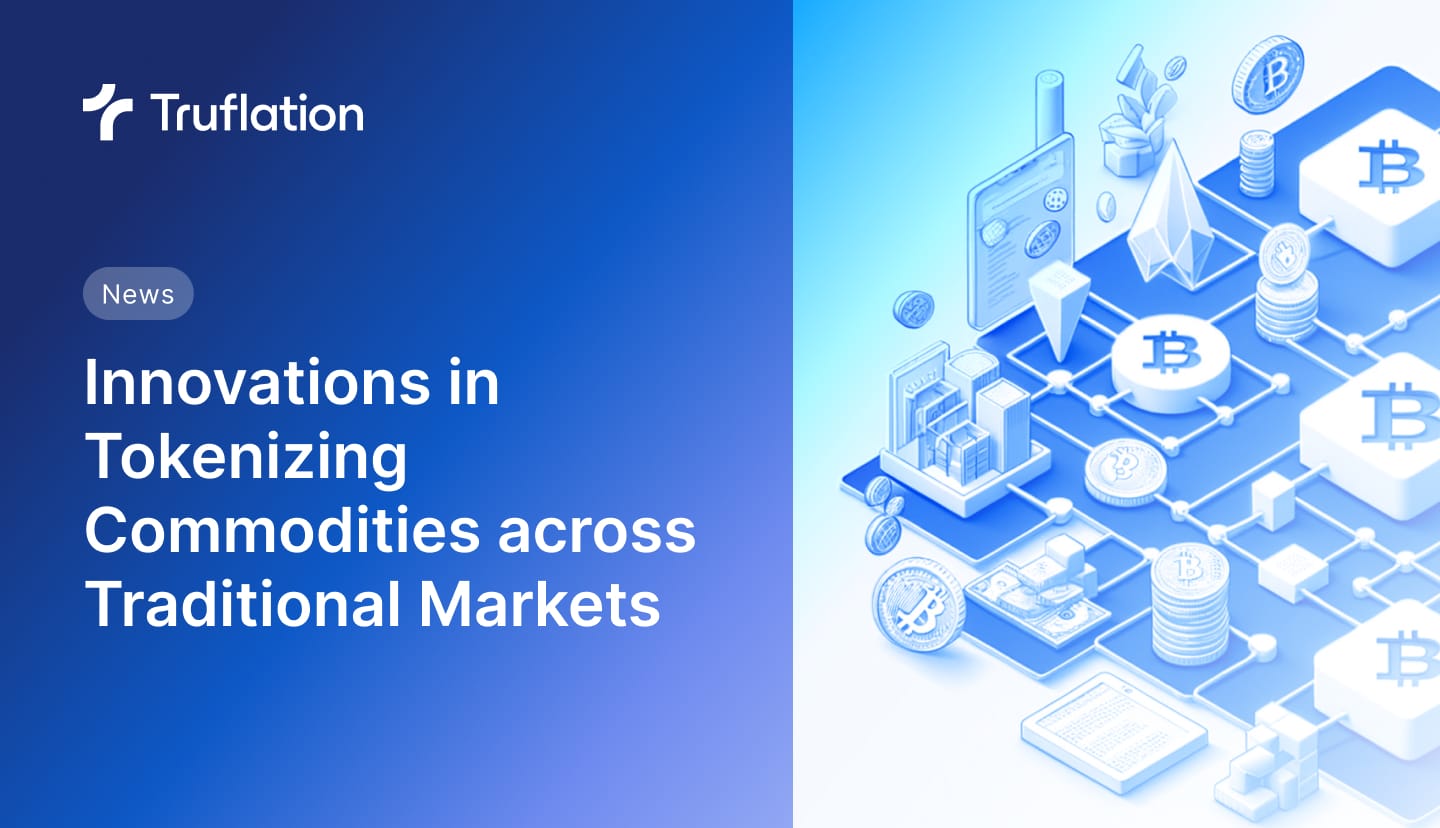Tokenizing Commodities, Traditional Markets

The intersection of blockchain technology and traditional commodities markets has given rise to a groundbreaking innovation – the tokenization of commodities. Truflation.com continues its exploration of finance's future, and in this installment just how tokenization is transforming the way we perceive, trade, and invest in commodities, unlocking new opportunities and efficiencies across global markets.
Understanding Tokenization of Commodities
Tokenization involves representing real-world assets, such as commodities, on a blockchain through digital tokens. These tokens are backed by the tangible value of the underlying commodities, providing a secure and efficient way to trade and invest in these assets.
Enhanced Liquidity and Accessibility
Tokenizing commodities introduces a new level of liquidity and accessibility to traditionally illiquid markets. Investors can now trade fractions of commodities, enabling participation from a broader range of individuals. This fractional ownership facilitates greater market efficiency and reduces the barriers to entry for smaller investors.
Real-Time Settlements and Reduced Counterparty Risks
Blockchain-based tokenization enables instantaneous and transparent settlements. Smart contracts, self-executing pieces of code, facilitate automated transactions once predefined conditions are met. This reduces the need for intermediaries, streamlining the settlement process and minimizing counterparty risks associated with traditional commodity trading.
Fractional Ownership and Diversification
Tokenization allows for the division of commodities into smaller, tradable units. This fractional ownership model enables investors to diversify their portfolios by holding stakes in multiple commodities without the need to purchase entire units. This democratization of investment opportunities enhances portfolio flexibility and risk management.
Transparency and Traceability
Blockchain's inherent transparency ensures an immutable and auditable record of commodity transactions. Every step in the commodity supply chain, from production to distribution, can be recorded on the blockchain. This transparency enhances trust among market participants, reduces fraud, and ensures the authenticity of the commodities being tokenized.
Global Market Access and Efficiency
Tokenization transcends geographical boundaries, providing investors with seamless access to global commodity markets. This accessibility facilitates price discovery, enhances market efficiency, and fosters a more interconnected and dynamic commodities ecosystem. Investors can now engage with a diverse range of commodities without the constraints of traditional market entry barriers.
Unlocking Illiquid Assets
Tokenization is particularly transformative for traditionally illiquid assets, such as real estate or rare metals. By converting these assets into digital tokens, their liquidity increases, making it easier for investors to buy, sell, and trade these commodities. This liquidity injection benefits both investors and issuers, fostering a more vibrant market.
Regulatory Considerations and Compliance
The tokenization of commodities brings forth new regulatory challenges and considerations. Regulators are working to establish frameworks that balance innovation with investor protection. Clear regulations are crucial for the widespread adoption of commodity tokenization, providing market participants with the confidence needed to engage in these novel financial instruments.
Challenges and Risks
While the benefits of tokenizing commodities are significant, challenges and risks persist. Issues such as technological vulnerabilities, regulatory uncertainties, and market volatility need to be addressed for the market to mature and gain broader acceptance.
The Future of Commodity Tokenization
As technology continues to evolve, the future of commodity tokenization looks promising. Innovations like decentralized finance (DeFi) and the integration of artificial intelligence (AI) into trading platforms are poised to further enhance the efficiency and accessibility of tokenized commodity markets.
The tokenization of commodities represents a paradigm shift in the way we approach and interact with traditional markets. By leveraging blockchain technology, this transformative process enhances liquidity, accessibility, and transparency, unlocking new opportunities for investors and issuers alike. As the world increasingly embraces the benefits of tokenized commodities, we are witnessing the dawn of a new era in global finance.

